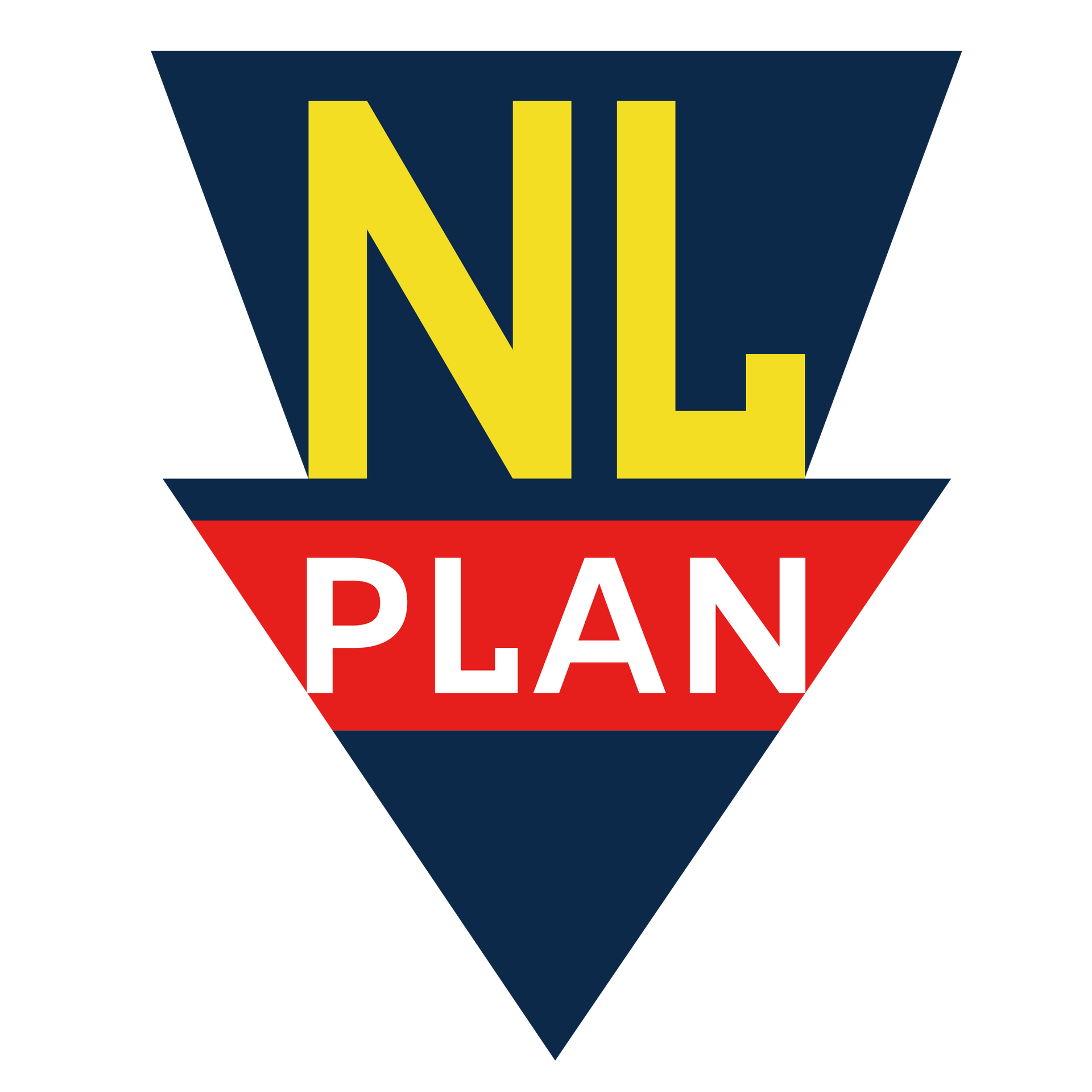Spatial planning, housing and construction
NL PLAN stands for creativity, liberality and autonomy. This is reflected in our building policy. Aesthetics, beauty and individuality should be starting points for new construction. Regulations should be greatly simplified, making it easier for people to build their own 'dream house'. At the same time, construction should be in balance with nature and the environment. For instance, we want to encourage circular and sustainable building, and we promote conversion and reallocation of vacant office buildings to make them suitable for habitation.
Sustainable building does not mean that we just stop building because of a nitrogen problem, because that is a largely administratively created problem. To solve the housing shortage, more than one million homes need to be built by 2030.
Building
Building smarter
Demand for housing is huge, so we cannot avoid building more, but densification is not desirable everywhere. We initially encourage conversion, function blending and reallocation of empty office buildings. We also focus more often on alternative solutions and projects around tiny houses (living units with a maximum of 50 square metres of floor space), flex housing (from an 18-square-metre studio to a three-room flat of 54 square metres) and kangaroo homes (two independent homes or living units under one roof).
In residential areas, we will have to densify more, without compromising residential enjoyment too much. The government should help with "topping up" residential complexes. One or more residential layers can often be built on top of existing houses. An old idea that could add thousands of extra homes a year. For example, if 2 per cent of the roofs in The Hague were utilised, the city could create 5,000 extra homes. Technically, it is possible. Do compensate for the nuisance to neighbours.
Relaxing rules for room rentals and front-door sharing is another example. Only as a last option do we look at building in outlying areas, with sustainable and circular construction being the preferred option. Building affordable social housing should be a priority.
Build more than one million homes by 2030
Stop the contradiction between the promise to build more than a million homes and the nitrogen rules that prevent it. The nitrogen problem is an administrative problem which has little to do with environment. To solve the housing shortage, about 1,010,000 houses will have to be built by 2030. Building is almost at a standstill due to the nitrogen policy and this must stop now.
Imagination and aesthetics sustain design
The Netherlands has fantastic architecture alongside hideous failures. Aesthetics, adventure and experimentation carry in building design on designated sites. Monument restoration and modesty at other locations. Variety of space and atmosphere are the starting point for spatial planning.
Budget overruns? Let contractors build at a fixed price
Large infrastructure construction projects and renovations have been plagued by substantial time and budget overruns for years. Well-known examples are the ten-kilometre stretch of the North/South line in Amsterdam (at €3.1 billion, twice the price), the 160-kilometre Betuweroute from the Maasvlakte near Rotterdam to the German border (€2.4 billion more expensive), the Rijksmuseum (closed for almost a decade, but €5.5 million cheaper) and the Stedelijk Museum (closed for almost eight years, €20 million more than the estimate) in the capital.
Not to mention the administrative agony of countless smaller tenders for construction projects. To solve this, governments should include a fixed construction price and construction period in contracts. The risk of profit and loss then lies with the contractor, who will surely take care to minimise costs and not exceed the completion date.
Long live the building citizen or citizen collective! Down with the speculator!
NL PLAN advocates 'organic building'. Citizens and citizen collectives are given much wider opportunities to build their own house or complex of houses. Municipalities no longer sell plots to developers/speculators, but to building citizens or small entrepreneurial building or remodelling initiatives. The housing market is full of housing regulations and housing organisations. It should be easier to develop small or individual initiatives in the housing market. Aesthetics and individuality should preferably play an important role in this.
Create opportunities for alternative forms of housing
In the future, there will be a growing need for other types of communal cohabitation in addition to traditional housing forms. Our building policy focuses more on alternative housing forms for elderly, student and idealistic or spiritual communities.
Environment Act offers a positive perspective
The Environment Act combines and modernises 26 laws for the living environment into one law. These include laws and regulations on building, environment, water, spatial planning and nature. The Environment Act stands for a good balance between using and protecting the living environment. NL PLAN sees a positive perspective in this and wants this law to be implemented. The Environment Act offers more space for citizens to participate in major building projects while safeguarding the quality of the living environment. As a result, construction cannot simply take place in areas unsuitable for it.
Public housing and housing construction
Stop the sell-off of social housing with low rents
Every week, houses are displayed in shop windows for tons of buyer's fees. To finance that, you need an income of three times modal. Usually, the asking price is substantially outbid, especially for a beautiful monument in a sought-after neighbourhood not far from the city centre.
Housing corporations continue to firmly believe in market forces. So there remains a desperate need to clamp down on the sale of social housing, especially those on the ground floor, because once sold, they never return to the social segment. Action groups, residents' organisations, FNV and tenants' interest groups regularly make their voices heard in mainly big cities, but big money continues to rule and frustrate.
Place-based displacement
Estate agents use garish texts in housing ads. Targeted in English especially to expats. Buyers are enticed to build up a fortune: buy it, fix it and sell it. After three years then, because that's how long the self-occupancy clause lasts.
When a social tenant has moved out or died, the property is almost always sold, and then there is a new population mix. The social tenant then gets to live in his neighbourhood less and less. Gentrification is in full swing. Its negative consequences are felt daily by local residents. In eight years of campaigning, only one house has been withdrawn from sale by a housing corporation in Amsterdam.
Place-based displacement is an urban sociological concept: the original residents have fewer and fewer familiar places in the neighbourhood: middle-class shops gone, meeting places gone, everything becomes catering establishments. So the neighbourhood changes without you having moved.
Wax nose
Housing corporations pursue their own real estate strategy. They sell what suits them, unencumbered by what agreements they once made. Countering increasingly unaffordable housing in neighbourhoods? Nothing to do with it. Promoting the availability of downstairs housing for the elderly and people with disabilities? No word on it. Preserving large complexes in the light of energy transition and sustainability? Nothing to do with it. The 2020-2023 performance agreements (the framework within which tenant representation and the municipality work together on public housing) were a wash.
Marginalised
The Parool headlined in mid-October: Sale of social housing feared: Amsterdam sends fire letter to cabinet asking for help. The article says that Amsterdam's housing corporations want to build 10,968 new social rented homes over the next four years, but that rental income is too low to pay for it. One can already hear the liberals cooing, "You see: social rent doesn't pay off!", but you don't hear them talking about the fact that corporations have been marginalised for decades.
Stop the sell-off!
As long as sales continue unabashedly, affordable (downstairs) housing is disappearing every week. NL PLAN wants a stop to sales. Right now, action is important. Negotiations are taking place on the policy for the next four years. The municipality and rental umbrellas must keep their backs straight and can use a little support to do so.
Enforce rent law
The Rent Act guarantees stable prices and will remain in place. Fixed prices are a protective barrier against the capricious and artificial market. The rent law now applies to houses below the initial rent limit of €808.06 (2023). NL PLAN prefers the rent law to apply to the entire rental market. Rent freeze and moderation of rental housing and commercial properties In recent years, rents of residential and office properties have risen astronomically. In the 1980s, the norm was that 16 to 22 percent of income went to housing costs. In the present era, that has risen to 30 to 50 percent.
Housing associations are social institutions and should build
NL PLAN stands for ownership and control of residents over their living environment. Housing associations should be social institutions again, with no room for commercialisation. The corporatisation from association to foundation was an undesirable development and should be reversed wherever possible. The annual payment of billions (landlord levy) to the state was disastrous for new construction of social housing. Housing associations are again required to use their huge social capital to build new rental housing at a favourable price.
Demolish private limited companies (BVs) of housing associations
In the 1990s, housing associations were taken away from residents and turned into foundations. The foundation boards then set up private limited companies to indulge in global speculation in shares, derivatives and real estate. These bv's should be dissolved with preference. Housing associations and foundations should do what they were set up to do. Using their resources exclusively to manage and maintain old homes and build new ones.
No priority policy on the housing market
Every person has a right to good housing. If there should be priority policies at all, first and foremost local people will have to be given priority. Also, entrepreneurs and people with social professions should then be facilitated first. We oppose that, through tax breaks, expats have the best opportunities on the Dutch housing market, thereby displacing old residents.
Stop trying to solve the shortage of (student) nurses, (student) policemen and teachers by luring them with social housing. These are homes that accrue to people who have been on a waiting list for a very long time. Instead, increase the starting salaries of these professionals.
Stop income-dependent rent increases
Since there is no agreement on any performance on the part of the landlord in return, the income-dependent rent increase should be stopped. Tying rent increase to income rather than the quality or area of a property has been a loose idea.
Living quality of social rented housing
Residents of social rented housing should be much better protected from the earning model of housing associations. The quality of life of tenants should be protected as the energy label (EP-W), for instance, does not apply to existing rental housing.
Recreational houses permanently habitable
NL PLAN stands for ownership and control of residents over their living environment. Making recreational houses permanently habitable is also a way to reduce pressure on the housing market.
Navigate using the red buttons below to read the rest.




